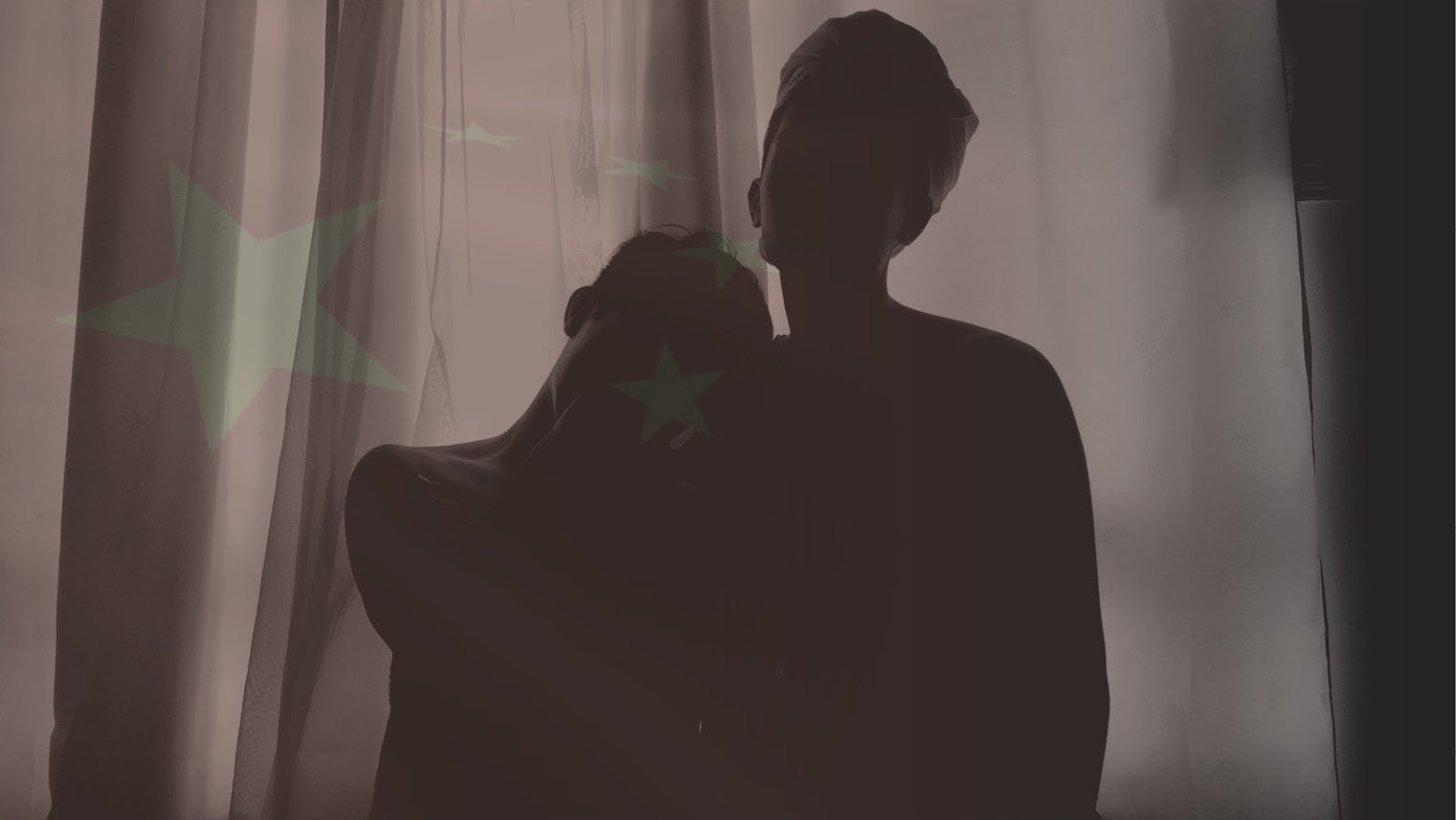Is there no room for freaks in the Chinese Dream?

All of China’s genuine diversity — and more — is represented within its expansive LGBTQ tent. It’s a damn shame we aren’t allowed to see it.
![]()
When Sina Weibo chose to sweep its platform for violent, pornographic, and “homosexual” content last Friday, it incurred massive backlash from LGBTQ individuals and their allies, who used handwritten letters to CEO Charles Chao 曹国伟 and the hashtags #IAmGay and #ISupportGays to pressure the internet behemoth, while more than 100 queer people took part in a rainbow flag marathon in Nanjing in a good-natured protest. Weibo’s Nasdaq share price dropped nearly 7 percent.
A climbdown of sorts came a few days later, with a blithe statement from the company saying its purge would “no longer target gay content.”
“Thank you for the suggestions and discussion,” was this Fortune 500 company’s appropriately smarmy parting shot.
Many friends are urging me to see the outcome of the scuffle with Weibo as a positive thing — we spoke, and the powerful listened. The People’s Daily even ran a flaccid editorial which seemed to gently chastise Weibo. “Intellectually speaking, everyone should respect others’ sexual orientation,” the writer argued, though with a caveat that “vulgar” content should be removed: “If people use all possible means to please the public with claptrap, get attention on internet platforms, and take sexual orientation as a ‘selling point,’ the content will become vulgar and profane.”
Let’s take stock here of what Weibo’s “U-turn” actually entailed: 50,000 posts, 100 accounts, and 60 trending topics deleted during the crackdown were not restored, while several influential LGBTQ accounts reportedly remain inactive. In short, the company’s original objective was largely achieved, and hasn’t been reversed. They didn’t even apologize. Forgive me if I’m not slipping into sequins and taking to my float for an impromptu celebratory parade.
I’m a drag queen, living in China since the Olympics, in which time I fell in love, got married, and became a parent — all of these milestones involving a Chinese citizen, none of them acknowledged by the Chinese government. I learned my craft here. My professional development has been entirely within the Chinese system.
In that time, I’ve witnessed the advent of social media result in an opportunity for people like me, long relegated to shadowy basement clubs, to emerge into the sunlight. It really seemed like things were getting better. But it would appear queer culture never quite dropped off the authorities’ long list of pollutants occluding China’s digital gene pool.
Received wisdom has it that Chinese gays are clean-living, high-earning, well-dressed, keep to themselves, and keep Taobao’s Aussiebum resellers in business. Sure, there are militant activists in their ranks, but they are far less prominent than in other spheres. Why would authorities go, en masse, after these bright, upwardly mobile young things, one might reasonably ask?
Because, my darlings, no matter how hard we try to conform, we still don’t fit in. No laws acknowledge our existence. No public official is assigned to monitor the health of our communities. Yes, we have our online TV shows, our handful of clubs, our dating apps, and even a few public advocates. All these flimsy, temporal support structures are easily swept aside. I am no less a freak for holding down a steady office job, being a hands-on parent, and devoting spare time to studying classical literature and Chinese cookery. I still engage in sexual activity with someone of the same gender, and, equally damningly, cavort around in heels and fake breasts for the entertainment of others. The opacity of China’s censorship apparatus and policymaking makes it impossible to discern which of these icky predilections is the less palatable to the powers that be.
“The New China,” the Potemkin village pimped by state media with unctuous pride, is reminiscent of nothing so much as the equally fictitious settlement inhabited by the Smurfs.
Conforming in all other aspects of life won’t save the born freak. You could be a preppy, cisgendered office worker in a discreet, committed relationship, or a bisexual dominatrix with your own line of padded chainmail restraints. It doesn’t matter. The Chinese big top wasn’t designed to accommodate personality, let alone identity. Go-go dancers, erotic masseurs, rappers, the tattooed – their very existence in the Party’s vision of a Brave New China is jarring. “The New China,” the Potemkin village pimped by state media with unctuous pride, is reminiscent of nothing so much as the equally fictitious settlement inhabited by the Smurfs. It’s 99 percent male, ethnically homogeneous, led by an old man in red, and its harmonious existence is constantly threatened by shadowy, effeminate bachelors in smocks whose only family is a cat.
Mainstream global culture remains overwhelmingly sex- (or “vice”) negative. China is no exception here. Almost everyone on the planet will unwittingly have at least one gay, bi, trans, genderqueer, or nonbinary friend, coworker, or family member. Yet few would knowingly be able to count sex workers, open kinksters, gay alternative musicians or conceptual artists, etc., among their circle of intimate friends, because so few of these people — yes, they’re people — dare to come out for fear, justifiable fear, of possibly violent reprisals.
People like me, however, do associate with the “undesirables.” Drag queens are a part of the circus. I’ve given lifts to gay porn stars. I’ve sung KTV in underground saunas with HIV-positive sex workers. I’ve gone on weekend excursions with cross-dressing Chinese opera performers. My drag sisters have read stories to my kids.
As gay people, even those like myself from loving homes, we get to choose our family. Many of the experiences I recount above are with people I number among my adopted queer family. Accepting money in exchange for sex, dressing in heels and butt pads on stage, or simply not conforming to heteronormative modes of dress, I’ve learned, is no barrier to sensitivity, generosity, and love.
There are 1.4 billion people in China, comprising myriad ethnicities, dialects, cultural mores, and lifestyles. But you’d barely know it from popular culture, as depicted on radio, film, and television.
Let’s revisit, if we may, the closing tableau in every CCTV Spring Festival gala. The rictus grins of the haggard hosts. The fixed, porcelain faces of whimsically costumed children. The “ethnic” cohort in their depressingly familiar costumes. Maybe some suitably weather-beaten migrant workers or farm laborers, for appearances’ sake. Everyone made up to be at least three shades whiter than their natural skin color. This isn’t representation — it’s confected modern mythmaking. These caricatures aren’t any more real than the Smurfs. Yet we’re asked to believe in them.
Now add a Zeppelin-titted drag queen to the lineup. A bearded, trans male bodybuilder. A lithe rent boy. A lesbian conceptual artist with a lip plate. An intersex ballet dancer. A multigenerational poly trio with their surrogate kids. Or just a medley of the ordinary LGBTQ people who make up China’s thriving, vital queer community echoing a complex, organic, and intangible national reality. You still won’t fully capture this vast country’s limitless diversity, but the message will be that China, like anywhere else, is an indefinable, dynamic melting pot.
All of China’s genuine diversity — and more — is represented within its expansive LGBTQ tent. The censors’ scarlet big top has room for virtually none. In this glorious new era, the queer, the nonconforming, the different aren’t part of the Chinese dream.
But they, more than any number of immaculately made-up backup dancers, represent what is genuinely glorious about my adopted homeland. I hope you get to meet them, someday.
![]()





